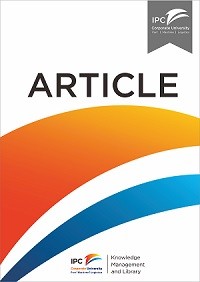Article
Exploring talenting talent management as a collective endeavour
Talent Management (TM) has been recognised as a key theme of Human Resource Management (Paawe 2007). Despite doubts about whether TM represents anything more than a repackaging of Human Resource practices (Chuai et al., 2008), in many organisations it is seen as an ‘essential management practice’ (CIPD 2015). However, surveys of practice suggest that TM is based mainly on an exclusive categorisation of employees which runs the risk of demotivating those who are not seen as part the TM process (CIPD 2013) or considered for programmes aimed at those identified as high performers (or HiPos) (Lacey and Groves, 2014). There are also concerns about the managerialist focus of TM based on narrow view of organization performance and the implication of a unitarist underpinning ideology (Thunnissen et al. 2013; Farndale et al. 2010). In combination, these tend to produce an over-concern with individuals as the unit of analysis and the possessors of talent and how specific HR practices are used to recruit, motivate, develop, retain and terminate individual employees.
Ketersediaan
Informasi Detail
- Judul Seri
-
European Journal of Training and Development
- No. Panggil
-
ATC MG CHE e
- Penerbit
- European : Emerald., 2016
- Deskripsi Fisik
-
25 p .
- Bahasa
-
English
- ISBN/ISSN
-
-
- Klasifikasi
-
MG
- Tipe Isi
-
-
- Tipe Media
-
-
- Tipe Pembawa
-
online resource
- Edisi
-
-
- Subjek
- Info Detail Spesifik
-
-
- Pernyataan Tanggungjawab
-
Ed Chesters Amanda Booth
Versi lain/terkait
| Judul | Edisi | Bahasa |
|---|---|---|
| One page talent management : eliminating complexity, adding value | en |
Lampiran Berkas
Komentar
Anda harus masuk sebelum memberikan komentar

 Karya Umum
Karya Umum  Filsafat
Filsafat  Agama
Agama  Ilmu-ilmu Sosial
Ilmu-ilmu Sosial  Bahasa
Bahasa  Ilmu-ilmu Murni
Ilmu-ilmu Murni  Ilmu-ilmu Terapan
Ilmu-ilmu Terapan  Kesenian, Hiburan, dan Olahraga
Kesenian, Hiburan, dan Olahraga  Kesusastraan
Kesusastraan  Geografi dan Sejarah
Geografi dan Sejarah